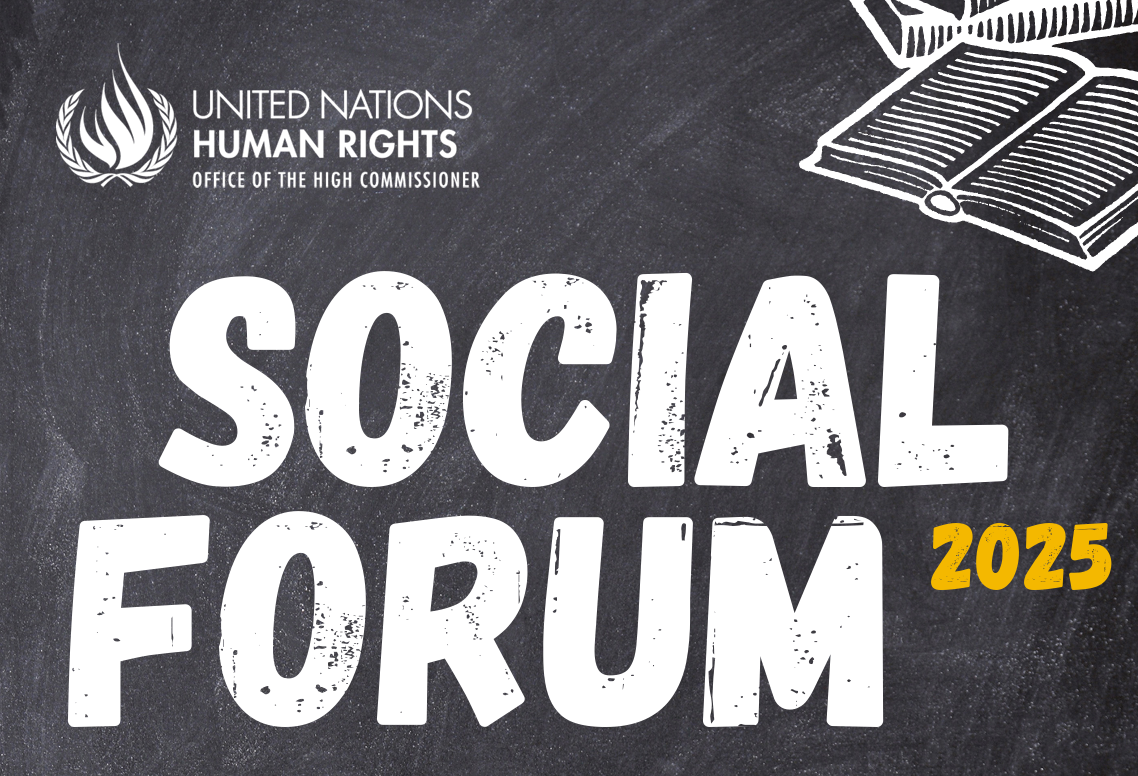UN Social Forum 2025: Italy reaffirms Education as the foundation of Human Rights

On the 30th and 31st of October, Italy actively participated in the United Nations Social Forum 2025, where it joined other high-level representatives and members of the civil society in reaffirming education as the foundation of human rights. The Forum placed education at the centre of human dignity, equality and peace, reaffirming it as both a fundamental right and a transformative force for sustainable societies.
UN High Commissioner for Human Rights Volker Türk described education as a long-term investment, specifying that every dollar invested in education yields ten to fifteen in economic growth. He warned that education is under attack worldwide, citing figures from Gaza, Sudan, Afghanistan, Haiti and Ukraine, where millions of children are denied schooling due to conflict and instability. Education is heeding the voice of reason, he said.
The Forum convened high-level representatives, academics and activists who explored how learning enables all other human rights, from equality and culture to health, work and environmental justice.
Farida Shaheed, UN Special Rapporteur on the Right to Education, reminded participants that education is an empowering and transformative right under strain due to underfunding, attacks on schools and the commodification of learning. She stressed the need to preserve academic freedom and promote comprehensive education on human rights, sexuality, democracy and mental health, while ensuring teachers are fairly compensated and supported.
Al Massot Thompson Flores, speaking on behalf of UNESCO, highlighted that where education thrives, societies prosper, yet 272 million children and youth remain out of school and attacks on education have risen by 44% between 2023 and 2024. She called for action across three key areas: political commitment, normative advancement and networking among civil society, universities and States.
Whitney Mélinard, President of Kopounoule Inc., linked education to environmental and climate justice, arguing that “every right comes with a responsibility”. She urged the decolonization of education systems to make learning relevant, relational and actionable - teaching empathy, accountability and respect for the planet.
From the perspective of education in emergencies, Petra Heusser of the Geneva Hub stressed that learning can be life-saving. In many crises, she noted, education is undervalued compared to food or water, yet teachers act as frontline workers protecting children’s lives, dignity and hope.
Camilla Croso, Executive Director of the Coalition for Academic Freedom in the Americas, addressed the link between the right to education and the right to science. She warned of growing harassment against researchers, specifically one in five scientists reporting intimidation related to COVID-19 research, and one in four on climate issues - and called on States to reaffirm academic freedom and strengthen cooperation between scientists, policymakers and the public.
Italy’s Commitment
Representing Italy, the delegation reaffirmed the country’s constitutional protection of the right to education and its role as a tool to form active and global citizens. Civic education is now a mandatory curriculum component from preschool through adult learning, encompassing constitutional values, sustainability, digital citizenship and human rights.
Italy also promotes inclusive education for Roma, Sinti and foreign-born students, and co-sponsored with Brazil, Costa Rica, Morocco, the Philippines, Senegal, Slovenia and Thailand the Human Rights Council Resolution A/HRC/59/9 on the Right to Education and Training, adopted in October 2024. The resolution launched the fifth phase of the World Programme for Human Rights Education, focused on reaching vulnerable youth and strengthening links with the 2030 Agenda for Sustainable Development.
The Italian statement reaffirmed support for the Safe Schools Declaration, an international commitment to protect students and teachers in conflict, and for the mandate of Special Rapporteur Farida Shaheed. Italy also led a joint statement on cultural rights of persons with disabilities, signed by 144 States, promoting inclusive education and awareness-raising through accessible curricula and teacher training.
Throughout the Forum, speakers agreed on a single message - education empowers individuals to act, think critically and participate meaningfully in society - making it not only a human right, but the path toward peace and justice.

